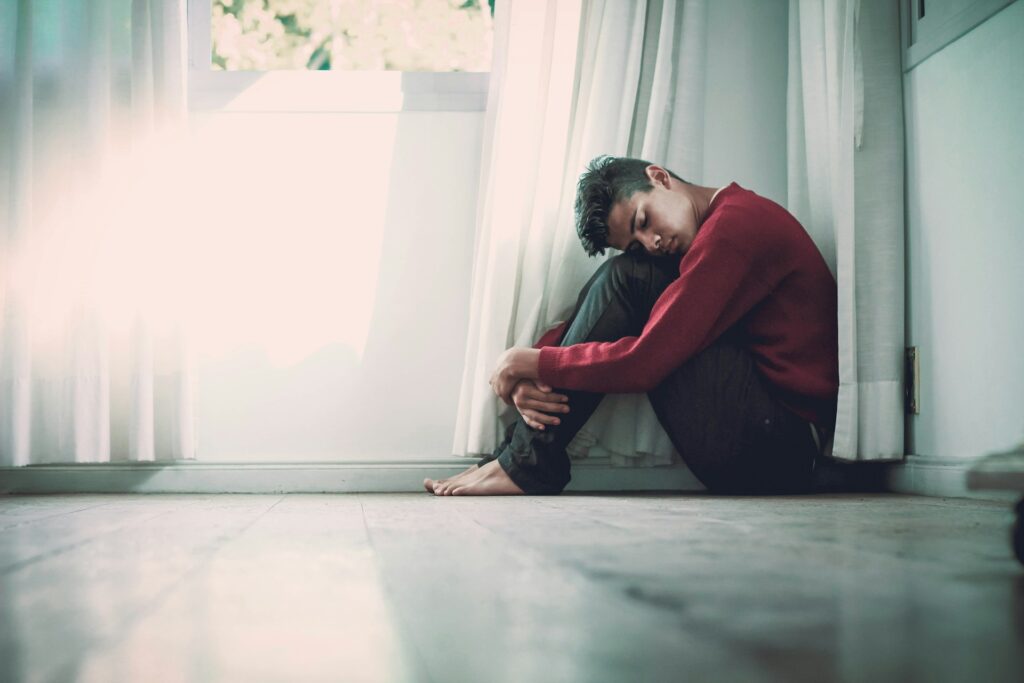Having no close friends can influence a person’s life in ways that stretch far beyond boredom or loneliness. While not everyone craves a large social circle, a total absence of meaningful connections can slowly impact emotional, mental, and even physical well-being. Humans are social by nature, and isolation tends to leave a noticeable mark. This article explores what really happens when someone lacks deep personal friendships.
Loneliness Can Change Brain Function
Prolonged social isolation can lead to changes in how the brain operates. People without close friendships may become more alert to perceived threats and develop higher levels of anxiety. The brain begins to focus more on self-preservation and less on social reward. Over time, this can cause a person to feel disconnected from others even in group settings. The longer this continues, the harder it becomes to form new bonds. Isolation rewires the brain to expect rejection, making future connections even more difficult.
Mental Health Declines Over Time

Without close friends to talk to, people often bottle up their feelings. This habit can lead to rising stress levels and eventual emotional exhaustion. People without emotional support are more prone to feelings of worthlessness, helplessness, or depression. Even those who appear confident on the surface may experience deep internal struggles without anyone to confide in. Emotional suppression can become a daily habit, and without relief, mental health tends to suffer.
Physical Health May Be Affected
A lack of friendship can also take a toll on the body. People who feel lonely often experience poor sleep quality and disrupted eating habits. Some studies have shown that loneliness can weaken the immune system, making it harder to fight off illness. Without close friends to encourage healthy choices, individuals may become more sedentary, drink more alcohol, or skip regular medical checkups. Over time, this increases the risk of heart problems, inflammation, and fatigue.
Confidence and Self-Worth Can Suffer
Close friends often provide more than company. They offer encouragement, validation, and reminders of our worth. Without that feedback, it becomes harder to measure personal value. People without friends may constantly doubt themselves or feel less secure in their decisions. This lack of external affirmation can make individuals question their social value and withdraw even more. Over time, self-esteem can shrink to the point where taking social risks feels unbearable.
Decision-Making Feels Heavier
Having someone to bounce ideas off can make decision-making easier. Without trusted friends, people may feel alone in their choices. Even small decisions can feel overwhelming without an outside perspective. This constant pressure to “get it right” can lead to decision fatigue and procrastination. Big life choices like career changes, moving cities, or ending a relationship become harder to navigate in isolation. The absence of honest feedback means individuals may overthink or avoid action altogether.
Emotional Intelligence May Decline
Friendship gives people opportunities to practice empathy, communication, and conflict resolution. Without those interactions, emotional intelligence can start to decline. People who live without close friends may find it harder to understand others’ emotions or handle social tension. This leads to more misunderstandings and discomfort in group settings. Without regular interpersonal feedback, social skills tend to grow dull over time, making future relationships harder to maintain.
Joy and Fun Become Less Frequent

Friendship is often the source of shared joy and spontaneous laughter. Without it, life can begin to feel routine or emotionally flat. People without close bonds may go months or years without truly laughing or feeling understood. This lack of joy can affect motivation and make everyday tasks feel less meaningful. Activities that used to bring happiness may no longer hold the same appeal when there is no one to share them with.
Life Feels Less Meaningful
Connection is a major contributor to life satisfaction. Without someone to witness your highs and support your lows, life can feel directionless. Achievements may feel hollow, and hard times may feel harder. People without friendships may struggle to find purpose beyond their daily responsibilities. The absence of emotional connection often leads to a feeling of emotional numbness or detachment from the world.
Isolation May Become a Habit

At first, being alone might feel like a temporary state. Over time, however, it can become a lifestyle. The longer someone goes without friendships, the harder it becomes to reach out. Social anxiety may grow, and the fear of rejection can stop people from even trying to connect. What starts as unintentional loneliness can turn into a self-reinforcing cycle where isolation feels safer than vulnerability.
Trust Becomes Difficult
Close friendships require trust, but without practice, trust can be difficult to rebuild. People who go long periods without emotional intimacy may develop skepticism toward others. This guarded approach often prevents connection before it can start. Rebuilding trust takes time, and without previous examples of healthy bonds, people may struggle to open up again. The fear of betrayal or misunderstanding can act like a wall between them and the friendships they need.
Emotional Support Is Missing in Crisis
In times of crisis, the absence of a close friend becomes more noticeable. Whether dealing with loss, illness, or financial hardship, having someone to lean on can make a major difference. Without that support, people are forced to cope alone. This increases the emotional burden and can cause problems to feel even more overwhelming. Emotional support does not always solve problems, but it offers strength during life’s hardest moments.
Social Milestones Feel Isolated
Many people rely on friends to celebrate birthdays, career achievements, or personal growth. Without those connections, these milestones can feel underwhelming. People without close friends may avoid celebrations altogether or feel awkward acknowledging their progress. This can lead to a sense that their efforts go unnoticed. Over time, they may stop setting goals or celebrating success because the joy of sharing it is missing.
A Lack of Feedback Slows Growth
Close friendships offer insight into our blind spots. Trusted friends can gently point out patterns that we may not notice ourselves. Without that feedback, personal growth becomes slower. People may repeat the same mistakes or stay in unhealthy routines simply because no one is holding up a mirror. Without someone to encourage change or offer perspective, self-awareness often stays limited.
Romantic Relationships Can Suffer
While romantic partners offer intimacy, they cannot replace the role of a close friend. People who rely entirely on romantic partners for emotional support may create imbalance in the relationship. This puts strain on both individuals and often leads to unmet needs. In addition, having no close friends outside the relationship can create dependency and leave little room for personal growth.
Group Settings Feel Uncomfortable
People without close friendships often feel out of place in groups. They may struggle to join conversations, feel excluded, or worry they are not welcome. This discomfort can lead to social avoidance, which further limits chances of forming bonds. Group settings become a source of anxiety instead of a space for connection. The cycle of discomfort and withdrawal reinforces loneliness over time.
Rebuilding Social Ties
Having no close friends does not just affect social life. It reshapes how a person thinks, feels, and functions. From emotional and mental health to physical well-being and personal growth, the impact of chronic loneliness reaches every part of life. While solitude can be healthy in small doses, humans are wired for connection. Rebuilding social ties may take effort, but it remains one of the most powerful ways to improve overall quality of life. Even one strong friendship can serve as a lifeline back to joy, trust, and emotional health.
Read More: 8 Signs Your Friendship Might Be More Harmful Than Helpful
Disclaimer: This article was created with AI assistance and edited by a human for accuracy and clarity.

